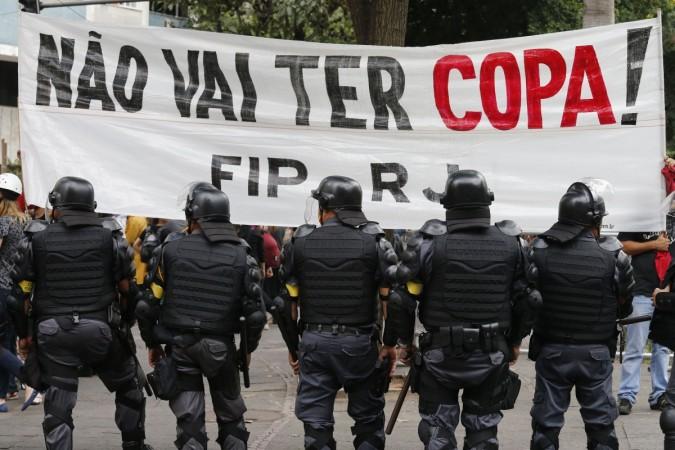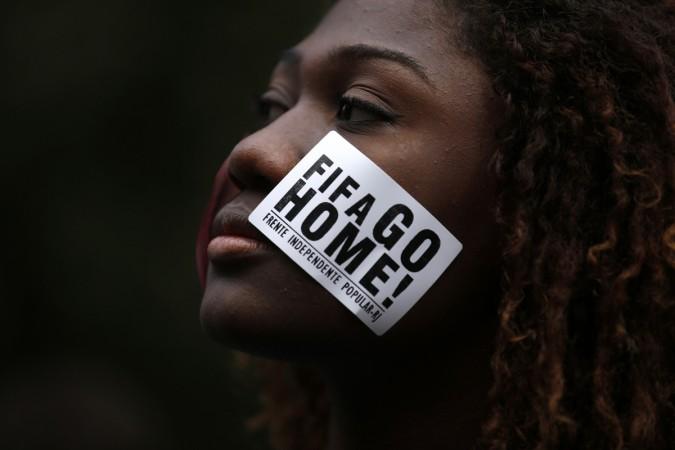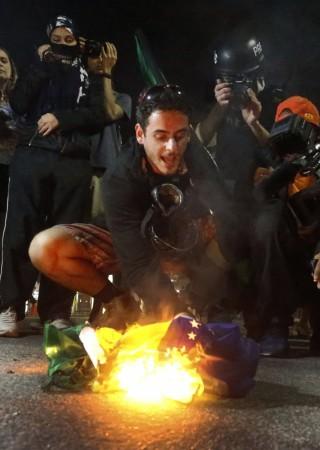
As the much-awaited football world cup kicked off with the host Brazil setting a strong foothold in its first game with a good 3-1 win, the otherwise joyful event was overcast with a grim cloud of violence in the streets of São Paulo, where the game took place and in Rio.
The Brazilian President Dilma Roussauf tried to give a semblance of solace nearly 48 hours before the start of the event saying that the game was meant for all Brazilian and that people must stop being preoccupied by the 'false dilemma,' which claims that the $11 billion spending for the event will somehow diminish investment in health, education and other public services.
Streets in São Paulo was gripped in a never-before-seen violence with officers using tear gas on crowds just hours before people in the stadium were celebrating Brazil's victory in the opening match.
Things were not too different in Rio de Janeiro where several people were reportedly injured in scuffles.

Airport workers in the city, earlier blocked a road outside the airport, demanding for a World Cup bonus and a wage increase. The strike was initially planned for 24 hours, but later called off early for legal reasons.
Teachers were reported to have staged rally in Rio city centre, sending the traffic into chaos in a day most others were excited about the game's start.
Protesters are angry at how the Brazilian government has 'squandered' the money for the World Cup event and in preparation for the Olympics, which Rio will host in 2016.
Gripped in an unprecedented economic downturn amid other socio-economic issues, Brazilians feel the money could have been better spent in education, health and public sectors.
'There won't be a Cup'
Police battled protesters with batons, riot shields and fired rubber bullets and tear gas near a metro station en-route to the Arena Corinthians – where Brazil beat Croatia. The violence took place only 13km away from the stadium where enthralled fans saw the Brazilian victory, thanks to two goals from Neymar.

Demonstrators tried to block the road, chanting "there won't be a Cup", and journalists were also among those injured. CNN said that one of its journalists, Barbara Arvanitidis, was among those injured. Another photographer working for the AP news agency was also injured when a stun grenade exploded near him.
There were also reports of clashes in Rio, the capital Brasilia, and two other host cities: Belo Horizonte and Porto Alegre, the BBC reports. About 200 people took part in a demonstration in Belo Horizonte.
Pictures doing rounds online show protesters overturning a police car and smashing the windows of banks and shops.

















